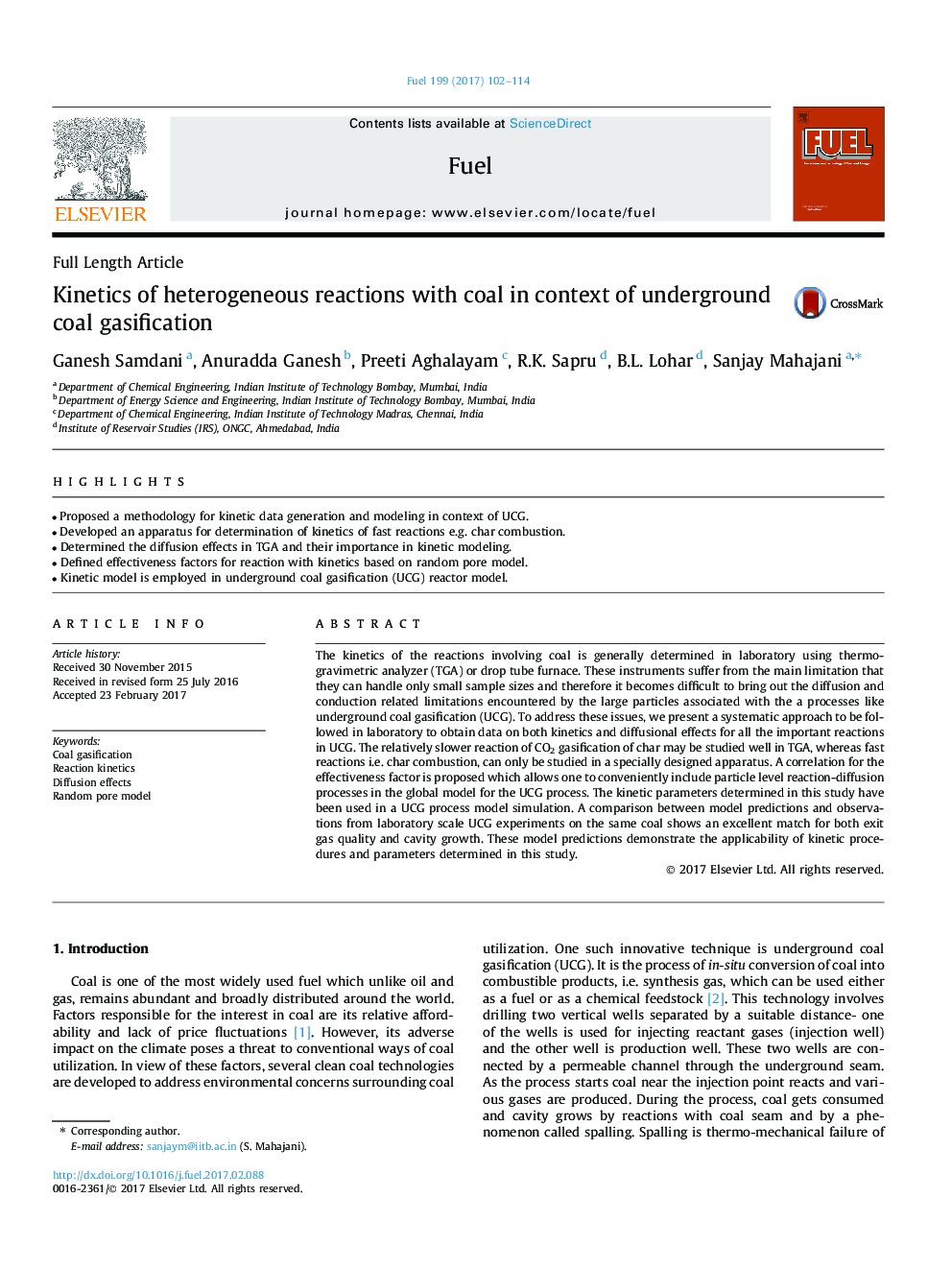| Article ID | Journal | Published Year | Pages | File Type |
|---|---|---|---|---|
| 6474711 | Fuel | 2017 | 13 Pages |
â¢Proposed a methodology for kinetic data generation and modeling in context of UCG.â¢Developed an apparatus for determination of kinetics of fast reactions e.g. char combustion.â¢Determined the diffusion effects in TGA and their importance in kinetic modeling.â¢Defined effectiveness factors for reaction with kinetics based on random pore model.â¢Kinetic model is employed in underground coal gasification (UCG) reactor model.
The kinetics of the reactions involving coal is generally determined in laboratory using thermo-gravimetric analyzer (TGA) or drop tube furnace. These instruments suffer from the main limitation that they can handle only small sample sizes and therefore it becomes difficult to bring out the diffusion and conduction related limitations encountered by the large particles associated with the a processes like underground coal gasification (UCG). To address these issues, we present a systematic approach to be followed in laboratory to obtain data on both kinetics and diffusional effects for all the important reactions in UCG. The relatively slower reaction of CO2 gasification of char may be studied well in TGA, whereas fast reactions i.e. char combustion, can only be studied in a specially designed apparatus. A correlation for the effectiveness factor is proposed which allows one to conveniently include particle level reaction-diffusion processes in the global model for the UCG process. The kinetic parameters determined in this study have been used in a UCG process model simulation. A comparison between model predictions and observations from laboratory scale UCG experiments on the same coal shows an excellent match for both exit gas quality and cavity growth. These model predictions demonstrate the applicability of kinetic procedures and parameters determined in this study.
